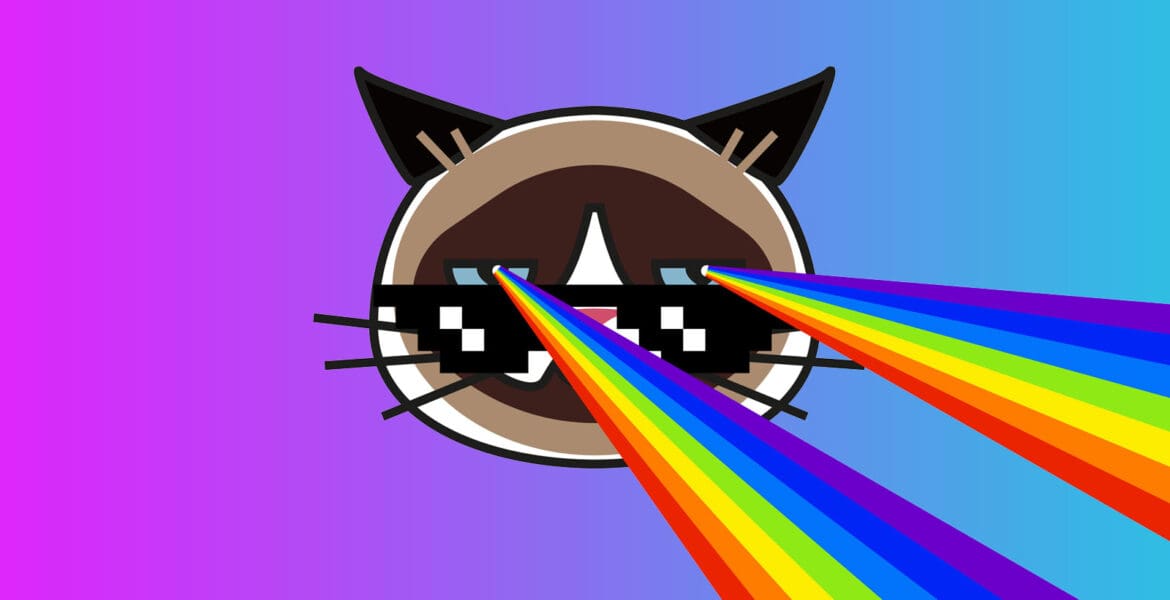Five Strategies for Communications Professionals
By Christopher Spong, Supervisor of Social Media + Communications, Collective Measures
You’re sitting at your kitchen table, waiting for your morning coffee to cool so you can take your first sip of that deliciously bitter elixir to help jumpstart your brain. As the steam rises from the novelty mug, you open your corporate-issued laptop and patiently wait for it to boot up. Without even realizing it, you’ve reached for your phone and begin mindlessly scrolling through Instagram.
Flicking past photos of friends and gratuitous celebrity selfies, you pause at the sight of a familiar stock photo model. Recognizing the account that shared the image, your brain immediately anticipates a laugh. But as you process the in-image text and scan below for the account’s caption, your stomach drops as it hits you — this meme is poking fun at your brand.
For some communications pros, this scenario is all-too-familiar. One minute you’re scrolling through your feed. The next, you’re briefing leadership on how to properly pronounce the word “meme” and explaining who Rand and Nance are.
If you’re fortunate, the meme will merely call attention to a relatable aspect of your brand, in which case you can finish that cup of coffee before sharing it with your team. You may even begin thinking of ways to build off the core joke of the meme and incorporate it into this week’s social plan.
If you’re not so lucky, the meme may expose a more serious flaw in your brand’s reputation and draw the ire of keyboard warriors who will circulate versions of the meme far and wide.
As you screenshot the post, scan the comments in the hope that loyal customers have come to your brand’s defense, and draft an email marked URGENT, you try to objectively consider whether the post qualifies for removal as spam.
Most likely, this won’t happen to your brand. But if it does, it helps to be prepared. And although the evolution and usage of memes is fascinating to observe, marketers and communications professionals caught without a plan may not enjoy the attention. Here is what you should do if the internet turns your brand into a meme.
1. Prepare an Integrated Communications Plan
Quickly creating a plan to address reputation issues is great. Already having most of a plan in place is even better. Without knowing exactly what issues a brand may need to contend with, pre-planning can help expedite response timing.
Consider who will need to be informed in the event an integrated communications plan needs to be executed. Identify key channel leads that would be responsible for managing pieces of a reputation management campaign and get their buy-in. While messaging and budget identification may have to wait, knowing what channels and departments can be leveraged is key to a fast and precise launch.
Of course, the perspective of the meme will also affect the nature of the integrated communications plan. Memes that highlight a brand can be borrowed (with the creator’s permission) and promoted to foster additional engagement. Memes that highlight a problem affecting a brand’s reputation, however, will need to be combatted with strategic messaging in key channels, including social, search, and on a company’s website.
2. Monitor Social for Mentions to Identify Trends
The fascinating thing about memes is that their growth in popularity can be monitored through online conversation. Social listening tools can help quantify the growth of a meme and pinpoint where and when the conversation began.
Sentiment and influence scoring can help triage which messages should be addressed first. Sentiment can also help communicators understand whether communications plans are having an impact on conversations as they continue.
If a social tool isn’t available, customer service and social media teams should be tapped to help identify trends through customer feedback and social comments.
3. Stay in Communication with Stakeholders
Although internet memes may be a novel challenge for some brands, being able to articulate what is happening and what it means for stakeholders remains essential. This includes being ready to inform corporate leadership of what’s happening, why it’s happening, what it means for the company, and how to respond, if at all.
If a meme highlights the shortcomings of a product, service, or company practice, address the issue directly with stakeholders to solve the problem. This may mean sitting down with company leadership, product managers, designers, and operations teams to resolve issues pointed out by consumers.
4. Measure Business Impact
As social conversations grow, the business may be impacted. Preparing to measure changes in consumer behavior will help in articulating the greater impact of being made into a meme. The sudden growth in online conversation, for example, might correlate with the increased website or foot traffic that would otherwise have gone unattributed to a marketing channel.
Beyond traffic, financial results could be impacted by memeification. From increases or decreases in sales to being turned into a meme stock, internet culture can have a tangible impact on business metrics.
5. Finally, Ride the Wave
The surge in attention, while not always based on customer loyalty, may draw a host of new consumers to your brand. This is an opportunity to show value. If a meme is positive, build on it and leverage the goodwill it has delivered.
If a meme highlights a negative brand perception, work to change that perception and turn awareness into advocacy through an integrated communications campaign.
After you finish this article and subconsciously begin to scroll through your Instagram feed for the 50th time today, consider how you might react if you spotted a meme about your brand. Who would you need to inform? What channels could you leverage to promote the message or change the narrative? How would you monitor the conversation and measure the impact? Though it may not happen to you, being prepared is crucial in the event the internet turns your brand into a meme.





